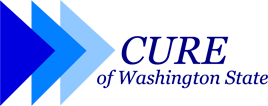Students across the United States are opting out of Common Core Assessments, and that includes Washington State. The US Department of Education funded two consortia to develop the assessments: The Smarter Balanced Assessment Consortium (SBAC) and the Partnership for the Assessment of Readiness for College and Careers (PARCC). In Washington State, we are using the SBAC assessment.
Here are a few points to keep in mind:
(1) Students may legally opt out. Yes, by law, Washington State schools are required to administer the assessments. However, students are not compelled by law to take the assessments. There are possible consequences, however. Through a phased-in schedule, high school students will eventually have to pass the SBAC to graduate. This year, however, juniors and seniors may use the assessments that are being phased out to graduate.
(2) Not Standardized. The assessments ARE NOT STANDARDIZED no matter what teachers, administrators, politicians, or the media say. This is from Smarter Balanced ‘s own website:
“Based on student responses, the computer program adjusts the difficulty of questions throughout the assessment. For example, a student who answers a question correctly will receive a more challenging item, while an incorrect answer generates an easier question. By adapting to the student as the assessment is taking place, these assessments present an individually tailored set of questions to each student and can quickly identify which skills students have mastered….. “
Think about it: If each student is being fed a different set of questions, it means each student is taking a different assessment. That cannot be described as “standardized.”
Also, please read our commentary: Lies, Damn Lies, and the Myth of “Standardized” Tests.
It is not the test that is standardized; it is the student who is being standardized through continued assessments.
(3) No Validity and Reliability Studies The SBAC (and also the PARCC) assessments are brand new. They have no track record. It has not been established yet that they actually measure college and career readiness. The use of the computer for this new assessment is unfamiliar to many students so low scores often reflect the students’ confusion with the computer process, not their lack of comprehension of the material.
Here is what is going on in some of the Puget Sound schools:
Nathan Hale High School, Seattle: http://www.king5.com/story/news/local/seattle/2015/04/23/sbac-standardized-testing-nathan-hale-high-school/26267407/
Garfield, Roosevelt, and Ingraham High Schools, Seattle: http://www.seattletimes.com/seattle-news/education/big-wave-of-seattle-juniors-skipping-new-high-school-tests/
University Place, Tacoma: http://www.thenewstribune.com/2015/04/29/3765492_half-of-curtis-high-school-juniors.html?rh=1
